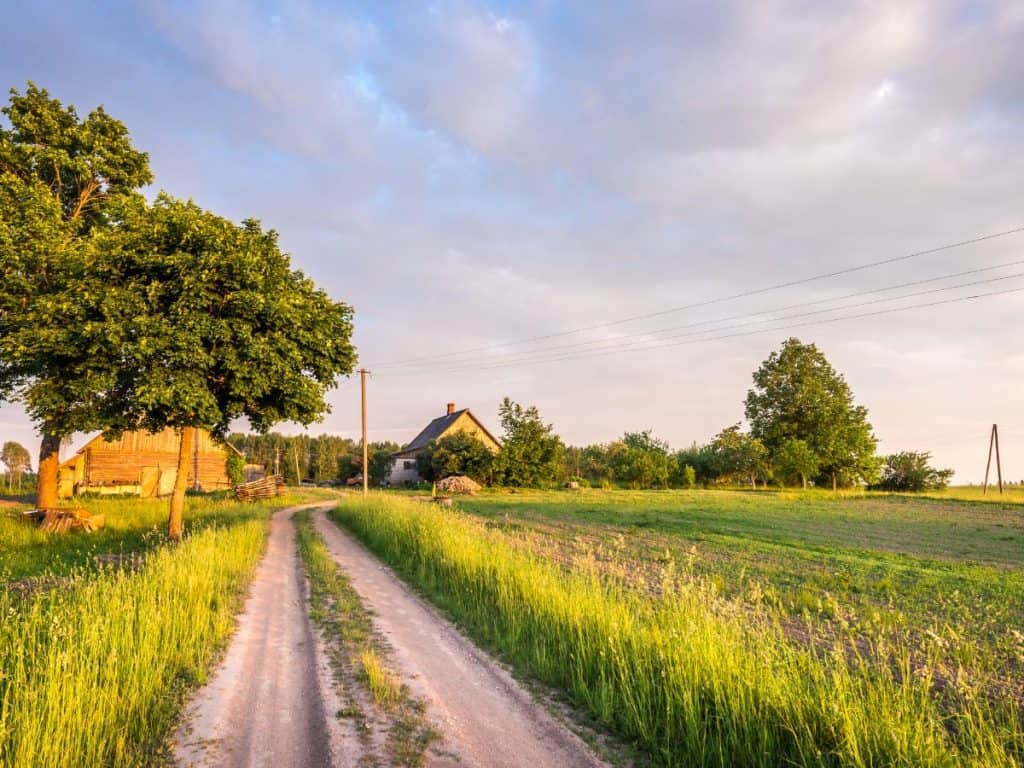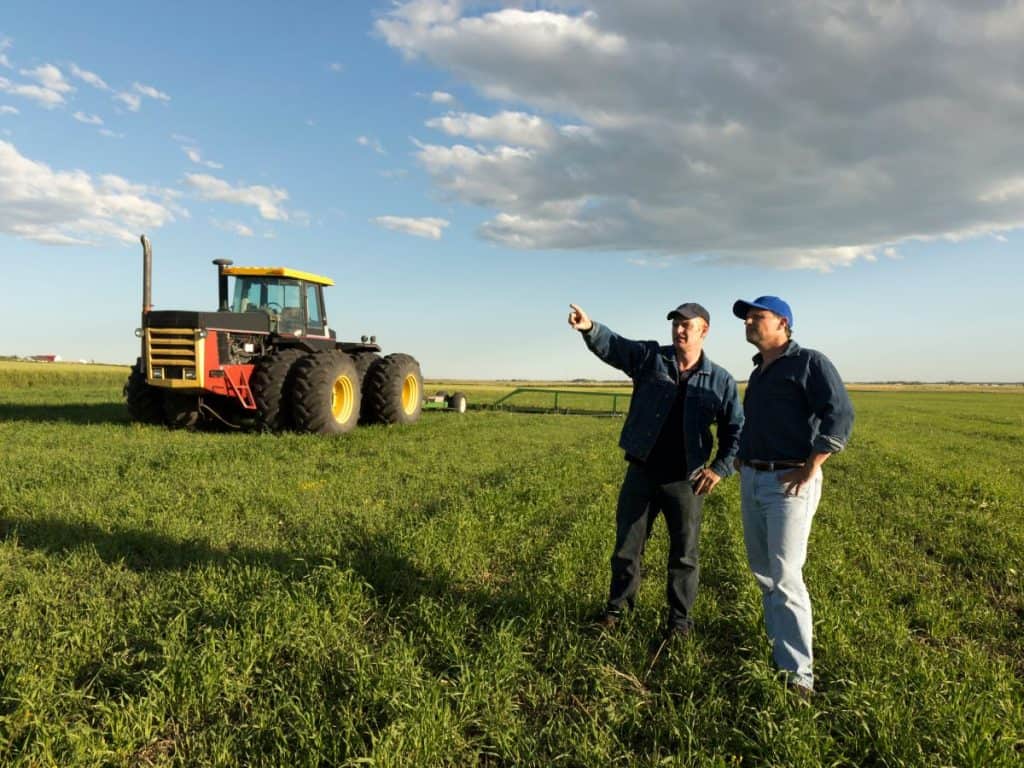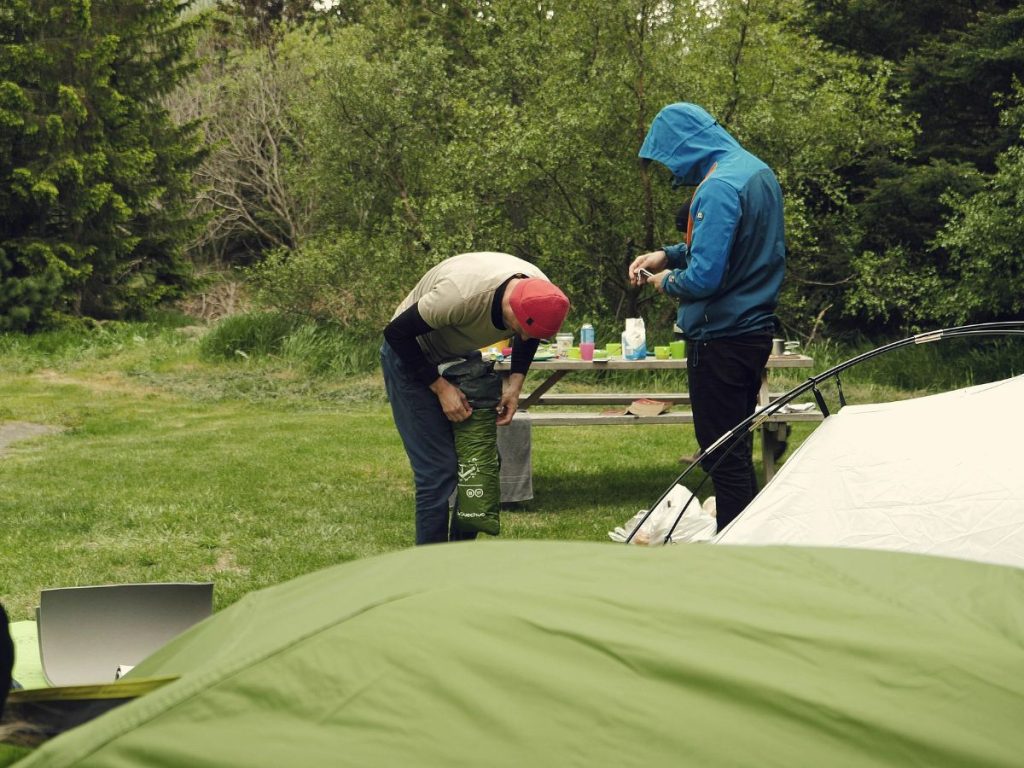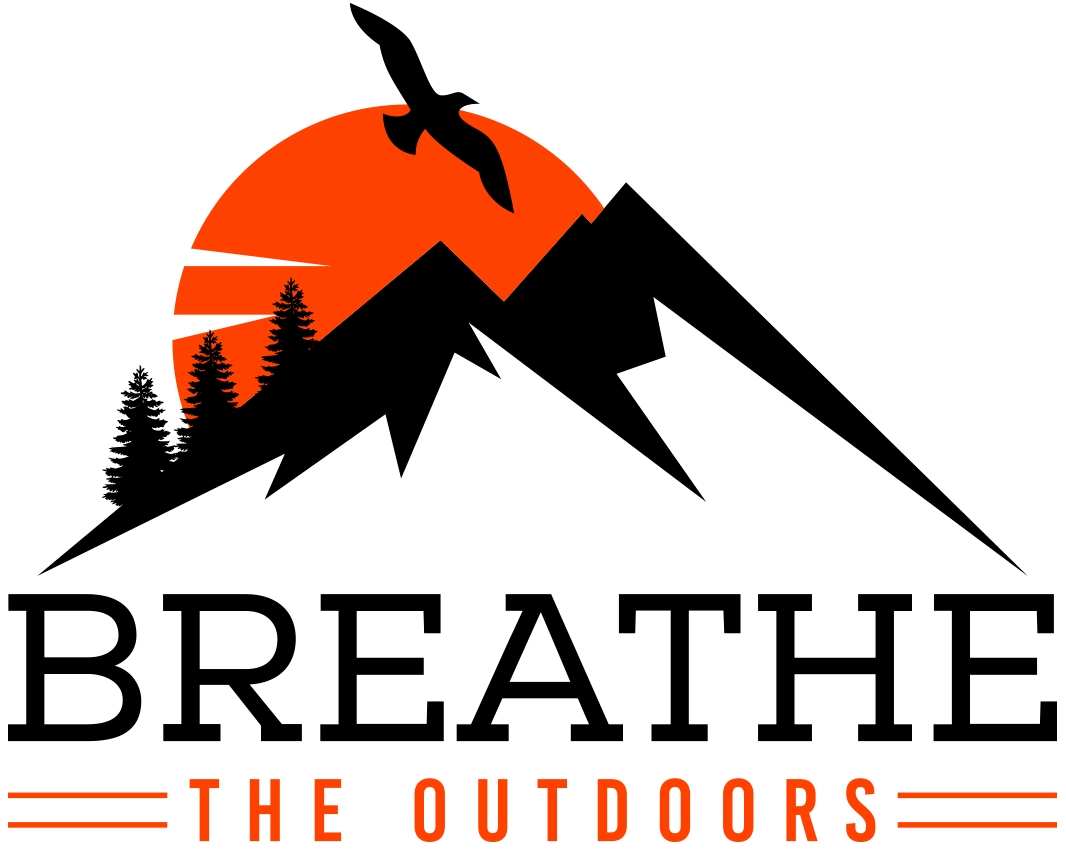Asking to camp on private land can feel uncomfortable the first time you try it. You imagine knocking on a stranger’s door or waving awkwardly at a farmer in the distance, unsure of what to say or how they’ll react. But in reality, most people are far friendlier than we expect them to be. Out in the countryside, where walkers and campers pass through almost every season, the sight of someone politely asking permission is nothing unusual.
What matters most is how you approach it. A friendly, polite tone, a bit of honesty, and a promise to leave no trace go a long way. You’re not trying to bend rules or take advantage, you’re simply asking to share the space for one quiet night, leaving it just as you found it. Once landowners understand that, many will happily agree. Some might even point you towards a better spot, away from livestock or sheltered from the wind.
Getting permission isn’t about formality either; it’s about connection. It shows you care about the land, and that respect tends to be returned. Before long, you realise that asking isn’t awkward at all – it’s just part of the experience, another small moment of human kindness on the way to a good night’s sleep outdoors.
To camp legally on private land in England or Wales, you need the landowner’s permission. The best way to ask is in person, with a friendly attitude and a clear explanation of your plan. Say that you’ll be staying for one night, that you’ll leave no trace, and that you’ll be gone early the next morning. If you can’t find the owner directly, look for their details online or ask locals nearby. A small donation or simple thanks is always appreciated, but good manners are what matter most.
When you start seeing permission as part of the journey rather than a hurdle, the whole idea of wild camping changes. It becomes a quieter, more respectful way of exploring, built on good manners and conversation. Let’s look at why asking first matters, and how it can make your trips easier and more enjoyable.
Contents
- Why Asking First Matters
- How to Find Out Who Owns the Land
- The Right Way to Ask
- When to Offer Money (and How Much)
- Common Red Flags and No-Go Signs
- How to Keep Permission Once You’ve Got It
- Final Thoughts
Why Asking First Matters
It’s easy to think of asking permission as a chore. You have your tent, the weather looks good, and there’s an empty field calling your name. It feels like nobody would care if you slipped in for the night and left before sunrise. But that small moment of hesitation, that decision to ask first, makes all the difference.
The truth is that wild camping in most of the UK (certainly if you’re looking to camp in England and/or Wales) exists in a fragile balance. Most of the land is privately owned, and the people who manage it are the ones who decide whether that balance holds. When you take the time to speak to someone and explain what you’re doing, you’re not only following the law but also showing respect for the land and the people who look after it. That courtesy builds trust, and trust is what keeps the quiet corners of the countryside open to people who want to camp responsibly.
There’s also something deeper that happens when you ask. It reminds you that every patch of grass, every woodland edge, belongs to someone. It’s not a barrier to your freedom but a reminder that you’re a guest, passing through. That mindset changes how you move through the landscape. You start to notice the details more closely, you tread a little lighter, and you leave the place exactly as you found it.
And most of the time, asking permission to camp on private land turns out to be easier than you expect. Farmers and landowners are often happy to say yes, especially if you explain that you’ll leave no trace and be gone by morning. Sometimes that simple act of asking opens the door to conversations, local advice, and a deeper connection to the place you’re visiting.
In the end, asking first isn’t just about avoiding trouble; it’s about keeping alive the kind of outdoor culture that values kindness and good manners as much as scenery and solitude.
How to Find Out Who Owns the Land
Once you understand why asking first matters, the next challenge is usually figuring out who to ask. It can feel a bit confusing at first because the countryside isn’t marked out neatly (that would be too easy!). What looks like open space might actually belong to a local farmer, a private estate, or even a utility company. The good news is, with a bit of curiosity and patience, it’s not hard to work out who owns most bits of land.
The easiest way is just to ask nearby. Villages, farm shops, pubs, and local walkers are full of people who know exactly who owns what. Rural communities tend to be tight-knit and helpful, and if you ask nicely, someone will usually point you in the right direction or even tell you the owner’s name. It might feel a bit old-school, but that kind of local knowledge is still miles more useful than any app.

However, if you want to do a bit of digging before you go, there are some handy tools online. The Land Registry lets you search specific plots for a small fee, though it’s better for farmland or defined areas than big open hillsides. Many campers also use OS Maps or Google Earth to spot field boundaries, tracks, and nearby farm buildings. If there’s a clear access track leading to a farmhouse, that’s usually the place to head for.
In national parks or public access areas, you can also try the park authority or local ranger service. They often know which landowners are friendly towards responsible campers and which areas are best avoided. Some even keep quiet lists of small farms that are happy for people to pitch discreetly for a night or two.
The main thing is not to overthink it. You don’t need to be tracking deeds or worrying about fine details. You just need to find someone connected to the land, explain what you’re doing, and ask in a way that shows you care.
Once you’ve figured that out, the next step’s the bit that puts most people off. How do you actually walk up, start the conversation, and ask without it feeling awkward?
The Right Way to Ask
Once you’ve worked out who owns the land, the hardest bit’s over. The rest is just a quick, friendly chat. Most landowners aren’t looking to make things awkward, they just want to know you’re not going to light a fire, leave rubbish, or spook their animals.
If you’re walking through farmland or along a right of way, the best thing to do is keep an eye out for someone working nearby – maybe on a tractor, in a barn etc. Give a friendly wave, walk over, and open with something simple like, “Hey, I’m doing a bit of walking and was wondering if you’d mind me camping here for one night. I’ll be gone early and won’t leave a mess”. That’s it. No long explanations, no nervous rambling; just polite, clear, and straightforward.
If you’re knocking on a door, it’s much the same – be friendly and direct. You could say, “Hi, I’m camping nearby tonight and wanted to check if you own the land by the old gate at the bottom of the hill. Would you mind if I pitch a small tent there for one night?” If they say no, thank them anyway. Most people will appreciate that you asked, even if they’re not comfortable with it.
Sometimes people like to offer a little money as a thank-you, especially if they’re camping near a farmhouse or using a corner of a field. A few pounds or even just offering to donate to a local charity is usually enough to show goodwill. You don’t need to make it a transaction; it’s more about the gesture than the amount.
And if you can’t find anyone to ask in person, leave a quick note explaining who you are, where you’ve pitched, and that you’ll be gone in the morning. Include your phone number if you’re comfortable doing so. It shows honesty and usually avoids any misunderstanding if someone finds your tent and wonders what’s going on.
There’s no perfect script for this sort of thing. The key is to sound like a decent person who cares about the place they’re in, because that’s exactly what you are (hopefully).
Once you’ve had that first conversation and realise how easy it is, the nerves disappear. Before long, asking becomes part of the rhythm of the trip, another small step in doing things properly. And if you’re ever unsure whether to offer money or just say thanks, it helps to know what each gesture means.
When to Offer Money (and How Much)
This bit’s completely up to you. Some campers like to offer a few pounds as a thank-you, others prefer to keep it as a friendly exchange with no money involved. Both approaches work fine, and most landowners aren’t expecting anything anyway.
Think of it more as a gesture than a fee. If you’re camping on a bit of private land near a farmhouse or using a corner of someone’s field, a small offer goes a long way. You could offer a fiver, or say something like, “Can I give you a few pounds for letting me stay?” Half the time they’ll smile, wave it away, and tell you to enjoy your night. Sometimes they’ll accept it, especially if they’re running a small farm or have regular walkers passing through.

It’s also fine to bring something instead of money. A small box of matches, a spare gas canister, or even just a packet of biscuits can feel more personal than cash. It’s about the thought behind it. You’re showing that you appreciate being trusted with the space, and that you don’t take that trust lightly.
If someone seems hesitant or unsure, offering a small payment can also help tip the balance. It turns the situation into a clear agreement rather than a favour, which can make them feel more comfortable saying yes. But don’t feel like you have to pay your way through the countryside. Most people would rather deal with a respectful camper than someone flashing notes to get their way.
The one rule to remember is never assume that offering money gives you automatic permission to camp on private land. Always ask first, always explain, and if they say no, that’s the end of it. A polite thank-you and a smile may leave the door open for next time.
Knowing when to offer something and when not to comes down to reading the situation. The more you do it, the easier it gets. And if a landowner says yes without a second thought, you can always repay the kindness in another way – by keeping their land exactly as you found it.
Once you’ve worked out that balance, it’s worth learning when to take no for an answer too. There are a few clear red flags that mean it’s best to move on and look elsewhere.
Common Red Flags and No-Go Signs
Even when you’re being polite and doing everything right, there’ll still be times when camping somewhere just isn’t worth it. Some spots look peaceful from a distance but turn out to be more trouble than they’re worth once you get closer. The trick is to spot the signs early and move on before you end up in an awkward situation.
The biggest red flag is obvious signs of livestock. If there are cows, horses, or sheep in the field, just keep walking. Animals are unpredictable at night and can easily trample gear or panic if they sense your presence (or smell your food!) nearby. You might think you’re tucked away safely in a corner, but a curious cow can wander a long way for a sniff of something new.
Next are fields with active crops. Even if the ground near the edge looks flat and inviting, it’s not worth risking damage to someone’s livelihood. Stick to rough pasture, woodland edges, or open moorland instead. If the land’s clearly being worked, it’s best to assume it’s off limits unless you’re told otherwise.
Keep an eye out for security cameras, “keep out” signs, or fresh fencing too. These are pretty clear indicators that someone’s had problems with trespassers before and probably won’t take kindly to uninvited campers. It’s not personal; it’s just experience.
Conservation areas and nature reserves are another place to avoid unless camping’s clearly allowed. These spaces are often carefully managed to protect wildlife or fragile habitats, and a single tent can undo a lot of work. If you’re not sure, check local signs or the park authority’s website before you pitch.
Lastly, trust your gut. If a place feels off (maybe it’s too close to a road, too visible, or just gives you an uneasy feeling) it’s usually a sign to keep going. There’s always another quiet corner waiting just over the next rise.
Part of becoming a good wild camper is learning to read the land like that. It’s not about being fussy, it’s about keeping things simple and peaceful for everyone involved.
Once you’ve found a good spot and been given the green light, the final piece of the puzzle’s how you behave afterwards. That’s what really decides whether you’ll be welcome again next time.
How to Keep Permission Once You’ve Got It
Getting a yes from a landowner is one thing. Making sure they’d happily say yes again is another. Once someone trusts you enough to let you camp on their land, how you handle that trust matters more than anything you said beforehand.
The easiest way to keep that good relationship going is simple: do what you said you’d do. Leave no mess, make no noise, and disappear early in the morning. When you pack up, take a slow look around your spot before you go, and if it looks exactly as it did when you arrived, you’ve done it right.
It helps to stay invisible in the best way possible. Don’t light fires, don’t invite friends, and don’t overstay. Even if the landowner was kind enough to let you stay longer, it’s better to move on after a night or two. Part of being a good guest is knowing when to go.

If you bump into the owner again before leaving, say thanks. A short chat or a wave goes a long way. You don’t need to gush – just a simple “really appreciate you letting me camp here” is enough. If you can’t see them, leaving a quick note or message is a nice touch. It reminds them you were genuine about leaving things right.
Some campers even send a follow-up text or photo later on, showing the tidy spot or a sunrise from the field. That little gesture can turn a one-time favour into a long-term welcome.
What keeps permission alive isn’t luck, it’s reputation. The more landowners who meet decent, respectful campers, the easier it gets for everyone who comes after. When word spreads that wild campers clean up after themselves and don’t cause hassle, the countryside slowly opens up a bit more for all of us.
Keeping that trust isn’t just good manners; it’s how wild camping stays possible in the first place. When you look at it like that, asking permission to camp on private land starts to feel less like a rule and more like a quiet agreement between people who love the land for the same reasons.
Final Thoughts
Once you’ve done it a few times, asking for permission stops feeling like a big deal. It becomes another part of the adventure, just like finding a good pitch or brewing that first cup of coffee in the morning. You realise that most people are kind if you meet them with kindness, and that a bit of conversation can open more doors than any map ever could.
The countryside runs on trust. When we camp quietly and leave nothing behind, that trust grows stronger. Every polite conversation, every tidy pitch, every early-morning departure adds to the slow shift in how landowners see wild campers. Over time, that’s what keeps the door open for all of us who love sleeping out under the stars.
If you’re still finding your confidence, start small. Try one polite ask, and learn from it. You’ll soon see that permission isn’t a hurdle, it’s an invitation – a simple exchange between people who care about the same land for different reasons.
And when you finally zip up your tent at dusk, listening to the quiet settling around you, you’ll know that you’re part of a bigger story. One that’s built on respect, curiosity, and the shared joy of being outdoors.
Related Posts
If you found this guide useful, you might like to take a look at these next:
- Wild Camping in England and Wales: Legal Options and Clever Alternatives
- What Is the Punishment for Wild Camping in the UK?
- Can You Camp Anywhere in the UK?
- Wild Camping in Scotland: Rules, Best Spots and Essential Tips
